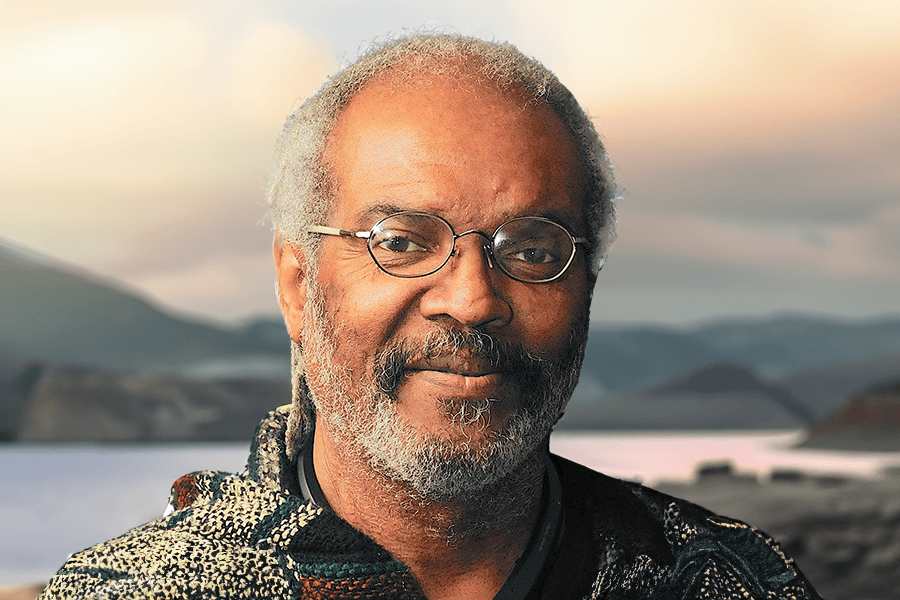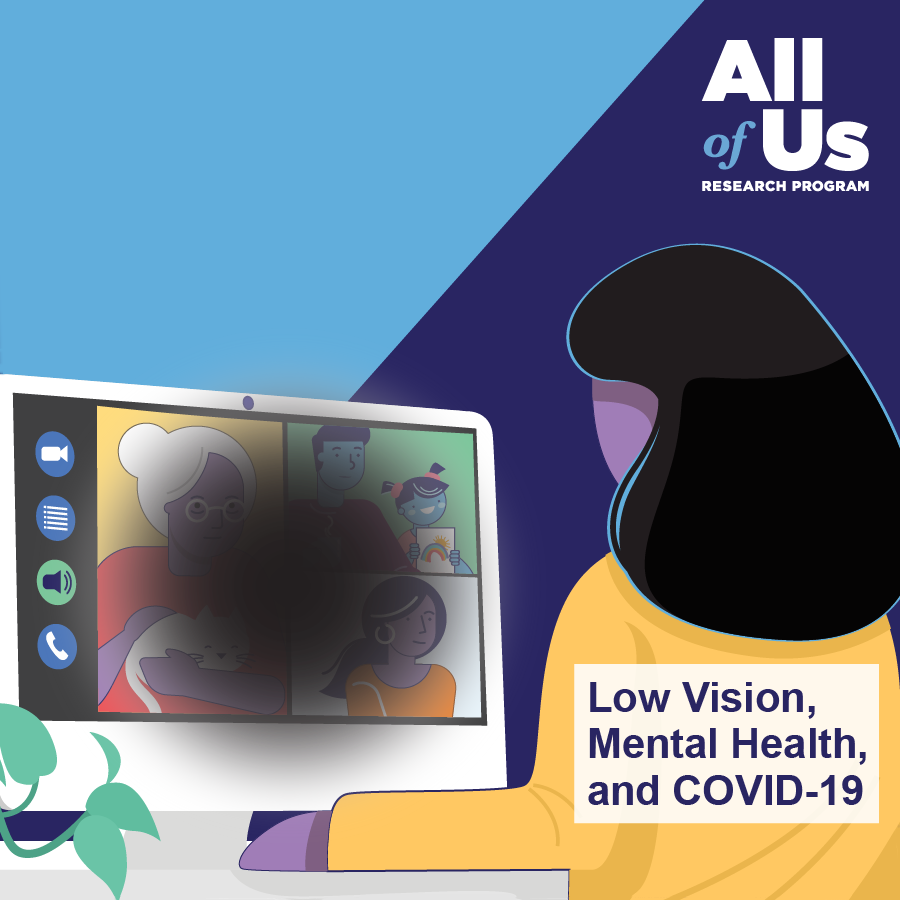
“Don’t just survive, thrive. Find your path of purpose.”
Ray Charles Lay has his own version of the blues.
Although he shares a name with the famous singer, All of Us Participant Ambassador Ray Lay tunes in to his own soul, openly sharing lessons from a life marked by trauma—incarcerated at age 14, later serving in the military, then homeless. The honorably discharged and disabled U.S. Marine emphasizes his long road to recovery, focusing on helping others with mental health issues and working toward a future where mental illness is better understood.
Key Facts
- Ray’s struggles with mental illness, began after a near fatal car accident at age 5, led him to a juvenile detention center, incarceration and homelessness.
- After he learned of his diagnosis with schizophrenia, Ray began to get treatment and started the long road to recovery.
- Ray serves as a Participant Ambassador for the All of Us Research Program to promote a better understanding of mental illness.
Ray’s motivating mantra is a sustaining chorus to his daily rhythm: “Instead of being bitter, let’s strive to get better.”
Serving as an All of Us Participant Ambassador and advisor to several other national groups has given Ray a strong sense of purpose and awareness about the value of sharing his personal experiences to help those around him.
Childhood Trauma
Ray was born in Mississippi in 1955, the youngest of four boys. His family moved to Indiana when he was 4 years old. His father, an African American World War II veteran, wanted to leave the South’s Jim Crow laws, which enforced racial segregation. His father got a job as a mechanic in Gary, Indiana, but was relegated to an overnight shift.
For Ray, the struggle with mental illness started young, though he didn’t know the diagnosis of schizophrenia until adulthood. He traces his troubles to a near-fatal car accident when he was 5 years old. His father was driving back to Mississippi with him and his mother. Ray was in the back seat when the car collided with a bus on the highway near the small town of Hayti, Missouri. The impact sent Ray hurtling through the windshield, onto the highway, unconscious, surrounded by glass. Although everyone survived, Ray was in a coma for several weeks. His symptoms intensified.
“I still bear the scars,” Ray said. “My life went from bad to worse to violent. I was hearing voices. They weren’t good.”
Ray started acting out at school, on the playground, and at home, becoming aggressive and disoriented. His parents sent him to a psychiatrist and disciplined him. When he was 8, they sent him to the Indiana Boys School, a state-run juvenile detention center that had a history of violence, abuse, and escapes, where he stayed for a year. At age 14, Ray stole a car, got his hands on a gun, and shot and killed a 20-year-old man who he said had bullied and attacked him. After a court-appointed attorney reviewed his background, Ray was found incompetent to stand trial by reason of insanity. He was committed to two years at Beatty Memorial Hospital, a state-run maximum-security mental health facility.
Soon after his release from the hospital at age 18, Ray noticed a U.S. Marine handing out information and asked whether he could join. Within months, Ray was stationed in San Diego, California, before being sent to the Philippines, South Korea, and Japan. Through his military service, he was able to obtain his high school diploma and begin college preparatory classes.
Ray’s service abruptly ended in 1978, less than two years later, after he had a psychotic episode while serving in Japan. He returned to Gary feeling devastated and defeated. He took to the streets, becoming homeless while misusing drugs and alcohol.
Finally, in 2003, at age 48, Ray took the advice of family and friends and visited a VA hospital. It was there that Ray first learned about his diagnosis. A social worker asked whether he was being treated for schizophrenia. “What’s that?” Ray said. It was the beginning of his understanding of his diagnosis and mental health history.
Road to Recovery
Reading his military files and hospital history allowed Ray to learn about his mental health history, accept his diagnosis, and change his behavior, becoming sober and stopping illegal drug use.
“I have six bullet wounds, three stab wounds, yet I am still alive,” Ray said. “I am a man of hope, and I believe my iota of hope needs to spread to others so that they can see recovery is possible. It is real and worth pursuing.”
Now, at age 68, Ray owns his own home and business in Indianapolis, aiming to “pay it forward” and help his community. He trains correctional officers, police officers, and first responders, openly detailing his experiences and offering de-escalation techniques. Ray is a Department of Veterans Affairs peer support specialist, a certified recovery specialist, and a member of the National Alliance on Mental Illness Board of Directors.
Ray is aware of his diagnosis and medical history and actively cultivates his own personal drumbeat of support, which he happily repeats to encourage others on the journey: “Don’t just survive, thrive. Find your path of purpose.”
Ray believes his participation in All of Us will help advance mental health discoveries.
All of Us Participant Ambassador
A group of 48 participant advisors helps support the program’s goals. These advisors offer feedback on strategies and governance by serving on committees, boards, and task forces. In his role as a Participant Ambassador, Ray was a strong advocate for the program’s planned training of staff who would be helping participants complete two newly launched All of Us surveys on mental health and well-being. As a result, the program offered several trainings on managing participant interactions, handling stress, and providing a list of mental health resources.
“Ray spoke so powerfully about his own experience,” said Jordan W. Smoller, M.D., associate chief of research in the Department of Psychiatry at Massachusetts General Hospital and professor of psychiatry at Harvard Medical School, who helped lead the All of Us task force developing the survey. “There’s a certain authority that comes from having his experiences. His insights help destigmatize and demystify what mental illness is.”
Ray’s namesake might have turned blues into soul, but Ray Charles Lay is turning his blues into helping other souls.
“I am committed to helping people stop listening to their negative internal voices,” Ray said. “I’m also a stigma buster, advocating for an end to judging people.”
Share your story with All of Us
If you would like to recommend someone to be featured, please submit a suggestion to All of Us.
Are you Interested in the All of Us Research Program?
- Learn about participation in the program.
- Learn about opportunities for researchers.
 U.S. Department of Health & Human Services
U.S. Department of Health & Human Services



